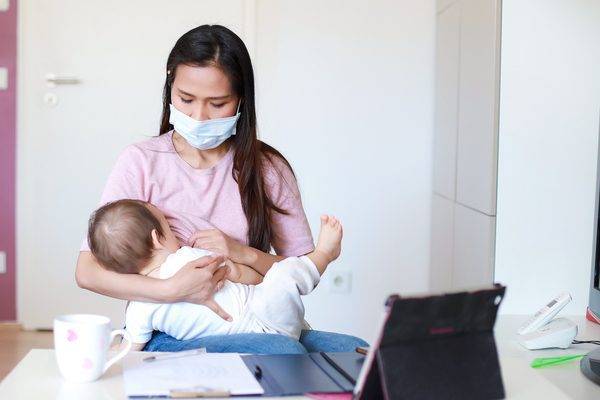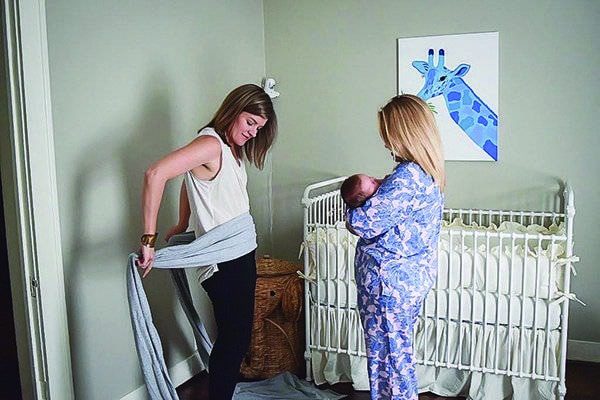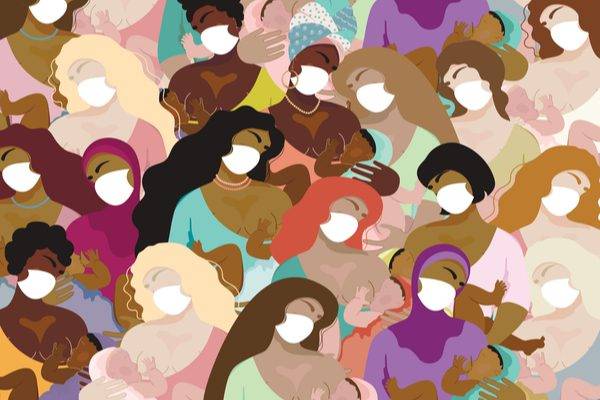Is it OK to breastfeed if you have COVID-19? We turned to Dr. Jessica Madden to find out. Dr. Madden is a mother of four and a board-certified pediatrician, neonatologist, and lactation consultant. She’s also the medical director for Aeroflow Breast Pumps.
You can breastfeed your baby even if you suspect you may have COVID-19.
The CDC reports that while it’s not known for sure if mothers with COVID-19 can spread the coronavirus to babies in their breast milk, the limited data available suggest this is not likely.
For years, the CDC has stated that breast milk is the best source of nutrition for most infants. While you or your baby may have other health conditions that would keep you from breastfeeding, Dr. Madden contends that COVID-19 doesn’t have to be one of them.
“All the benefits to the baby in terms of development and helping to protect from other illnesses outweigh the minuscule risk of a baby getting sick from the breast milk,” she says.
If you suspect you have COVID-19, you must take precautions to protect your baby while breastfeeding.
If you have COVID-19 or suspect you may have been exposed to the coronavirus, the CDC recommends that you wear a mask while breastfeeding and wash your hands with soap and water for at least 20 seconds before each feeding.
“Wear a mask that is properly fitting,” Dr. Madden adds. “I say that because a lot of people out in the public I see wearing masks so low down on their nose that they’re really not effective.”
You can wear a cloth mask or a paper surgical mask, she says.
You should not, however, put a mask on your baby.
“That is not safe at all due to the risk of suffocation and breathing problems,” Dr. Madden explains.
If your child’s crib is in your bedroom you have COVID-19, you may think you need to wear a mask while you’re sleeping. But that’s not safe either.
Instead, Dr. Madden recommends keeping the crib six to eight feet away from your bed.
According to the CDC, mothers who choose to pump their breast milk should be sure to do the following:
- Avoid using a shared breast pump.
- Wear a mask while pumping.
- Wash your hands with soap and water for at least 20 seconds before touching any pump or bottle parts and before expressing breast milk.
- Follow recommendations for proper pump cleaning after each use, cleaning all parts that come into contact with breast milk.
If possible, you could also have someone who doesn’t have COVID-19 feed your baby with the expressed milk, provided that this healthy caregiver is not at high-risk for severe illness from COVID-19 and lives in the same home with you and your baby.
There’s a chance your breast milk could help your baby fight the coronavirus.
Researchers at Amsterdam UMC’s Emma Children’s Hospital have found antibodies against the coronavirus in the breast milk of women who had been infected with COVID-19. And the antibodies were still present even after the milk was heated.
Dr. Madden says studies like these give her more reason to declare that breast milk is best even in the face of the COVID-19 pandemic.
There are a lot of moms who are scared,” she says. “But I would encourage moms that it’s safe to continue to breastfeed. And it’s a great way to bond with your baby.”
Ultimately, the decision to start or continue breastfeeding should be made by you, with the help of your family and healthcare providers.



